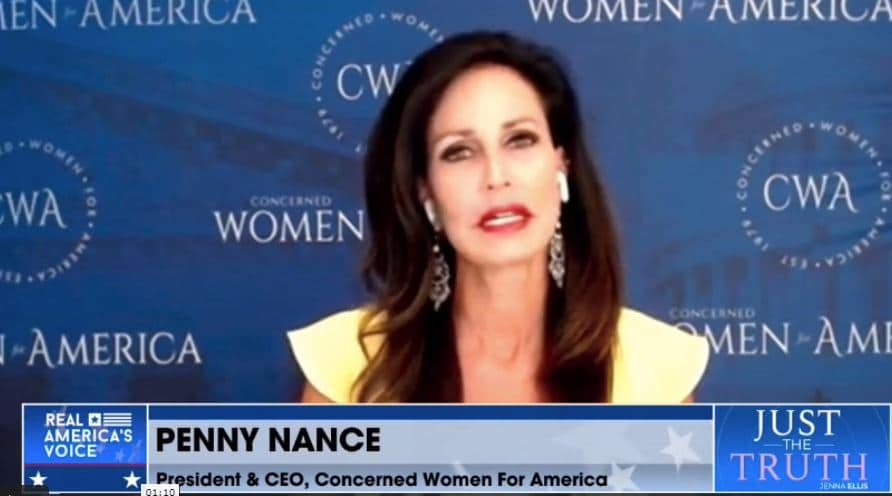Penny Nance on True Female Empowerment

CEO and President of Concerned Women for America, Penny Nance, joined Jenna Ellis on Just the Truth to discuss the importance of rooting their identity in Christ. They remind young women especially that they are conquerors through Christ.
International Community Condemns China’s Violations of Uyghur Human Rights

By Jaelyn Morgan, Intern for the Department of International Affairs, Concerned Women for America In the face of China’s gross violations against the Uyghur people and other minorities, the United States is speaking out. So is Concerned Women for America. The U.S. State Department has accumulated mounting evidence on China’s systemic human rights violations against […]
Meet CWA’s Ronald Reagan Memorial Internship Summer Interns

Hello! My name is Jaelyn Morgan, and I am currently interning with Concerned Women for America (CWA) in the International Affairs Department. I am absolutely thrilled to be working with this faith-based, conservative organization. I am similarly convicted about CWA’s seven core issues and love how they combine prayer with action, living out the Biblical […]
U.S. Relationship with World Health Organization will be Determined by This Year’s Presidential Election

Figure 1: Dr Tedros Adhanom Ghebreyesus, Director-General of the World Health Organization (WHO) provides Coronavirus updates at the WHO daily press conference on June 7, 2020 By Jaelyn Morgan, Intern for Concerned Women for America’s Department of International Affairs On Tuesday, spokesman Stéphane Dujarric confirmed the United States has officially notified U.N. Secretary-General António Guterres […]
Defunding World Health Organization is Necessary; Here’s Why

By Jaelyn Morgan, Intern for the Department of International Affairs, Concerned Women for America Wall Street Journal could not have phrased it any better, “What good is a global health agency that won’t tell the truth about a pandemic?”[1] Yet, controversy still surrounds the recent announcement made by President Trump to defund the World Health […]
